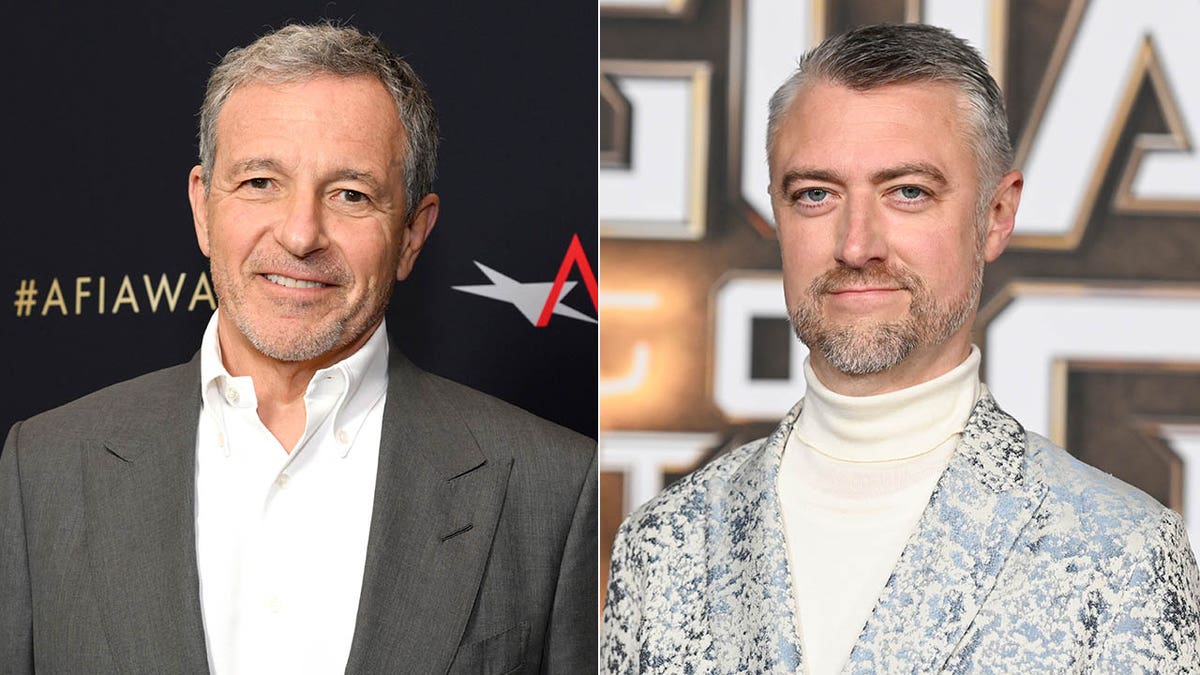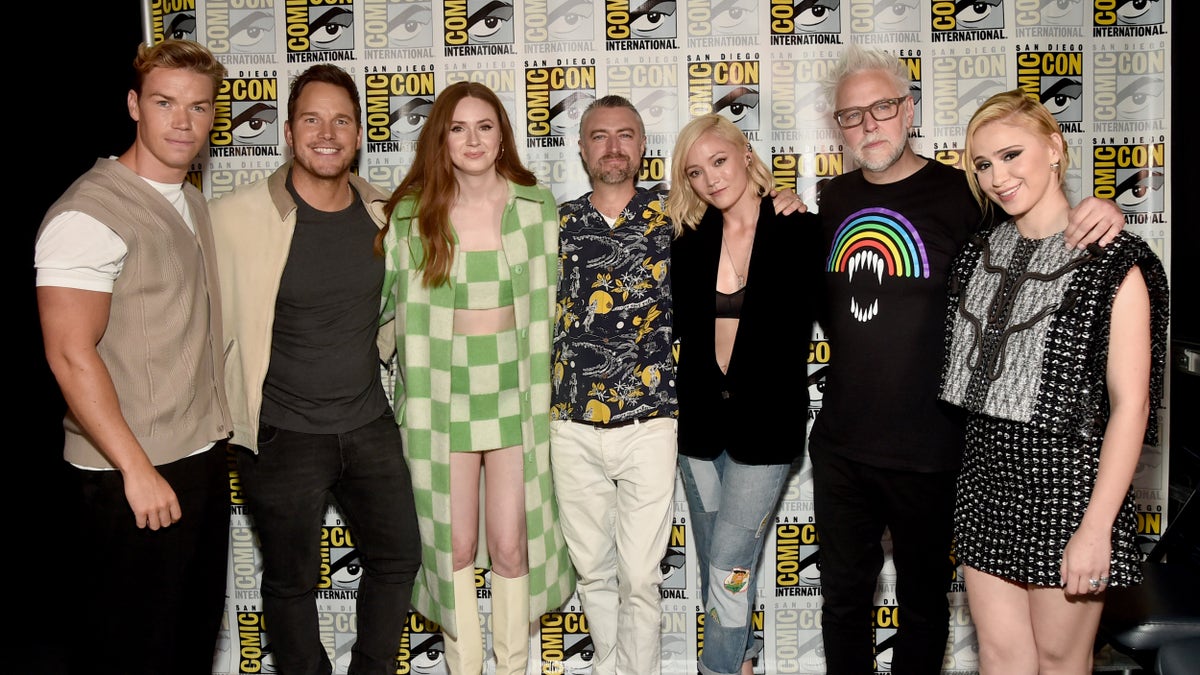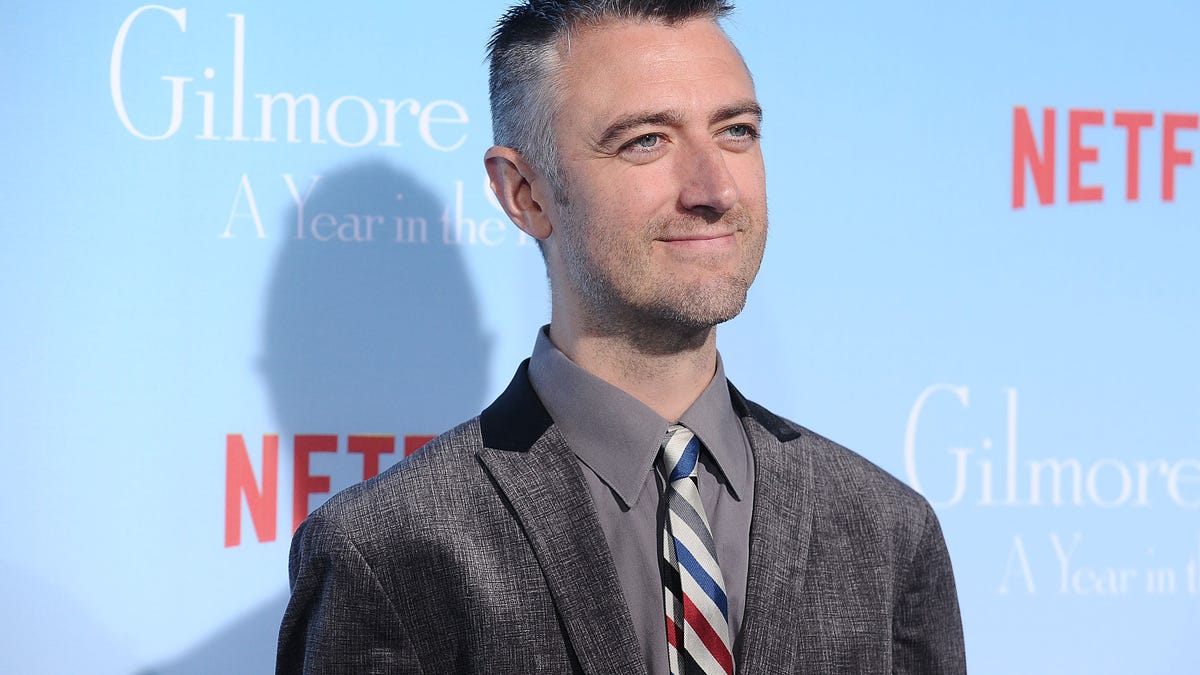Disney CEO Bob Iger blasted by striking Hollywood actress and SAG union rep: Its bulls--t!
Joely Fisher, an actors union representative and half-sister of late Star Wars actress Carrie Fisher, blasted Bob Iger for his claims that the strike was "disruptive."
"Guardians of the Galaxy" star Sean Gunn blasted Disney CEO Bob Iger over comments that the executive made about the Writer's Guild of America and the Screen Actors Guild – American Federation of Television and Radio Artists (SAG-AFTRA) strikes.
Shortly before SAG-AFTRA joined the WGA on strike Thursday, Iger, 72, made an appearance on CNBC's "Squawk Box" during which he said that the pending actors union strike would have a "very, very damaging effect on the whole business."
"It will affect the economy of different regions, even, because of the sheer size of the business. It’s a shame, it is really a shame," he added.
Gunn, 49, addressed Iger's remarks from the picket line in a TikTok video that was shared by the Associated Press on Friday.
"I think when Bob Iger talks about, ‘What a shame it is,’ he needs to remember that in the 1980s, CEOs like him made 30 times more than what the lowest worker was making," the actor said. "Now Bob Iger makes 400 times what his lowest worker is, and I think that’s a f------ shame, Bob."

"Guardians of the Galaxy" star Sean Gunn called out Disney CEO Bob Iger over strike comments. (Getty)
Gunn continued, "Maybe you should take a look at yourself in the mirror and ask yourself, ‘Why is that?’ and not only why is that, is it okay? Is it morally okay? Is it ethically okay that you make much more than your lowest worker?"
Gunn is the brother of "Guardians of the Galaxy" franchise director and DC Film co-CEO James Gunn, 56. He has played Kraglin Obfonteri in all three installments of the franchise as well as the Disney+ tv movie "The Guardians of the Galaxy Holiday Special," "Avengers: Endgame," "Thor: Love and Thunder" and the Disney+ animated series "What If...?"
He also starred as Kirk Gleason on the drama series "Gilmore Girls" during the show's seven-season run from 2002 to 2007. Along with "Gilmore Girls" stars Lauren Graham and Alexis Bledel, Gunn returned to reprise his role in the 2016 revival miniseries "Gilmore Girls: A Year in the Life."
"Gilmore Girls" debuted on the WB and moved to the CW ahead of its final season. In 2014, Netflix began streaming all 7 seasons of the series. Netflix produced "Gilmore Girls: A Year in the Life," which was released on the platform before later airing on the CW.
In addition to calling out Disney and Iger, Gunn also vented his frustration at Netflix and the streaming giant's co-CEO Ted Sarandos and executive chair Reed Hastings. Speaking to the Hollywood Reporter from the picket lines Friday, he said that he "particularly wanted to come out and protest Netflix."
Gunn expressed his dismay over the minimal residuals that he has received from streaming.
"I was on a television show called ‘Gilmore Girls’ for a long time that has brought in massive profits for Netflix," he said.
"It has been one of their most popular shows for a very long time, over a decade. It gets streamed over and over and over again, and I see almost none of the revenue that comes into that."

Gunn is the brother of "Guardians of the Galaxy" franchise director James Gunn and has appeared in all three installments of the franchise as well as other MCU films and TV projects. (Alberto E. Rodriguez/Getty Images for Disney)
However, the residuals that Gunn was referring to are actually paid by Warner Bros. Discovery, the studio that originally produced "Gilmore Girls" and later licensed the show to Netflix. In keeping with industry standards, producers hold the obligation to pay residuals. The amount of residuals paid by Warner Bros. Discovery is calculated off the licensing fees charged by Netflix.
Gunn also claimed that Sarandos and Hastings gave each other bonuses in the "10s of millions dollars."
"I don't understand why they can't lessen those bonuses to share the wealth more with the people who have created the content that has gotten them rich," Gunn said. "It really is a travesty. And if the answer is, 'Well, this is just how business is done, this is just how corporate business works,' that sucks. That makes you a bad person."
"You really need to rethink how you do business and share the wealth with people," he added. "Otherwise this is all going to come crashing down."
However, THR reported that Gunn's comments regarding Sarandos and Hastings' compensation were inaccurate as the majority of their pay came from stock options and bonuses were not a factor, per SEC filings.

The "Gilmore Girls" star also slammed Netflix and its co-CEO Ted Sarandos and executive chair Reed Hastings. (Jason LaVeris/FilmMagic)
The actors joined screenwriters in their months long strike against studios, streaming services and production companies represented by the Alliance of Motion Picture and Television Producers (AMPTP) on Thursday, marking the first time in over six decades that the two unions have been on strike at the same time.
Since May, writers have been on strike, asking for a guaranteed number of writers per room, increased pay, and regulated use of artificial intelligence (AI) in the writing process.
CLICK HERE TO SIGN UP FOR THE ENTERTAINMENT NEWSLETTER
Actors want increased minimum pay rates, increased streaming residuals and guarantees from studio and production companies about how, exactly, AI will be used.
During Iger's interview with CNBC, he told the outlet that the actors and writers unions' expectations are "not realistic.

Iger said that the actors and writers unions' expectations are "not realistic. (Vittorio Zunino Celotto/Getty Image)
"It’s very disturbing to me. We’ve talked about disruptive forces on this business and all the challenges we’re facing, the recovery from COVID which is ongoing, it’s not completely back. This is the worst time in the world to add to that disruption," Iger said.
CLICK HERE TO GET THE FOX NEWS APP
He continued, "I understand any labor organization’s desire to work on behalf of its members to get the most compensation and be compensated fairly based on the value that they deliver. We managed, as an industry, to negotiate a very good deal with the directors guild that reflects the value that the directors contribute to this great business."
"We wanted to do the same thing with the writers, and we’d like to do the same thing with the actors. There’s a level of expectation that they have, that is just not realistic. And they are adding to the set of the challenges that this business is already facing that is, quite frankly, very disruptive."
Fox News Digital's Kendall Tietz contributed to this report.
















































